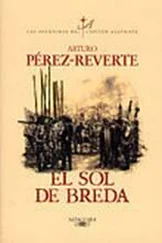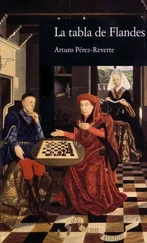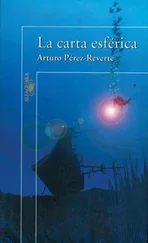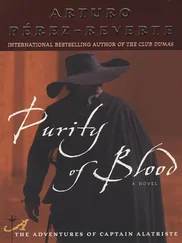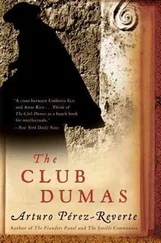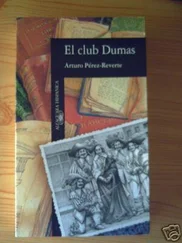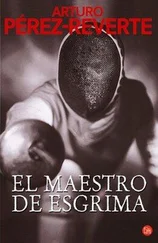Arturo Pérez-Reverte - The Sun Over Breda
Здесь есть возможность читать онлайн «Arturo Pérez-Reverte - The Sun Over Breda» весь текст электронной книги совершенно бесплатно (целиком полную версию без сокращений). В некоторых случаях можно слушать аудио, скачать через торрент в формате fb2 и присутствует краткое содержание. Жанр: Старинная литература, на английском языке. Описание произведения, (предисловие) а так же отзывы посетителей доступны на портале библиотеки ЛибКат.
- Название:The Sun Over Breda
- Автор:
- Жанр:
- Год:неизвестен
- ISBN:нет данных
- Рейтинг книги:5 / 5. Голосов: 1
-
Избранное:Добавить в избранное
- Отзывы:
-
Ваша оценка:
- 100
- 1
- 2
- 3
- 4
- 5
The Sun Over Breda: краткое содержание, описание и аннотация
Предлагаем к чтению аннотацию, описание, краткое содержание или предисловие (зависит от того, что написал сам автор книги «The Sun Over Breda»). Если вы не нашли необходимую информацию о книге — напишите в комментариях, мы постараемся отыскать её.
The Sun Over Breda — читать онлайн бесплатно полную книгу (весь текст) целиком
Ниже представлен текст книги, разбитый по страницам. Система сохранения места последней прочитанной страницы, позволяет с удобством читать онлайн бесплатно книгу «The Sun Over Breda», без необходимости каждый раз заново искать на чём Вы остановились. Поставьте закладку, и сможете в любой момент перейти на страницу, на которой закончили чтение.
Интервал:
Закладка:
“I wonder if you have something to tell me,” said Captain Alatriste.
He had spoken very softly, with nothing nuanced in his tone. I looked up. He was sitting beside me on the large rock beneath the tree. He held his hat in his hand and was staring with an absent air toward the distant walls of Breda.
“There is not much to say,” I replied.
He nodded slowly, as if accepting what I said, and lightly stroked his mustache. Silence. His motionless profile made me think of a dark eagle resting high on a cliff. I noted the two scars on his face—one on an eyebrow and the other on his forehead—and the one on the back of his left hand, a memento Gualterio Malatesta had bestowed at the Las Animas gate. There were more scars hidden beneath his clothing, eight in total. I looked at the burnished hilt of his sword, the cobbled boots tied around his legs with harquebus cords, the rags visible through the holes in the soles, the mended tears in his threadbare brown cape. Perhaps, I thought, he had once been in love. Perhaps, in his way, he still was, and that included Caridad la Lebrijana and the silent blonde Flemish woman in Oudkerk.
I heard him sigh softly, barely a breath expelled from his lungs, and then he made a move to get to his feet. I handed him the letter. He took it without a word and looked at me closely before he started reading, and now it was I who stared at the distant walls of Breda, as expressionless as he had been a moment before. Out of the corner of my eye I watched the hand with the scar rise to stroke his mustache again. Then he read. Finally I heard the crackle of the paper as he folded it, and once again I held the letter in my hands.
“There are things…” he began after a moment.
Then he stopped, and I thought that was all he would say, which would not have been strange in a man given more to silences than to words.
“Things,” he continued finally, “that they know from the time they are born. Though they are not even aware that they know them.”
Again he cut himself short. I heard him shifting uncomfortably, seeking a way to finish.
“Things it takes us men a lifetime to learn.”
Then silence again, and this time he did not say anything more. Nothing in the vein of “Take care, guard against our enemy’s niece,” or other comments that one might have expected under the circumstances, and that I, as he undoubtedly knew, would have immediately ignored with all the arrogance of insolent youth. For a while he stared at the distant city, then put on his hat and stood up, settling his cape over his shoulders. And as I sat and watched him on his way back to the trenches, I wondered how many women, how many wounds, how many roads, and how many deaths—some owed to others and some to oneself—a man must know for those words to remain unspoken.
It was mid-May when Henry of Nassau, Maurice’s successor, tried to test Fortune one last time, attempting to deliver Breda and to leave our bollocks buried in the ashes. It was the whim of fate that at that time, just on the eve of the day chosen by the Hollanders for their attack, our colonel and some of his staff were making a round of inspections along the northwest dikes and that Captain Alatriste’s squad, chosen that week for the duty, was serving as escort. Don Pedro de la Daga was traveling with his usual ostentation: he and a half-dozen others on horseback with his commander-of-the- tercio standard, six Germans with halberds, and a dozen soldiers, among them Alatriste, Copons, and other comrades on foot, harquebuses and muskets shouldered, clearing the way for the general’s party. I was bringing up the rear, carrying my pack filled with provisions and a supply of powder and balls, looking at the reflection of the string of men and horses in the quiet water of the canals, which the sun was tinting even more red as it sank toward the horizon. It was a peaceful dusk, with a clear sky and pleasant temperature; nothing seemed to announce the events that were about to be unleashed.
There had been movement of Dutch troops in the area, and don Pedro de la Daga had orders from General Spínola to take a look at the Italian positions near the Merck River, on the narrow road of the Sevenberge and Strudenberge dikes, to ascertain whether they needed to be reinforced with a bandera of Spaniards. Jiñalasoga’s intention was to stop for the night at the Terheyden garrison, which was under the command of the sergeant-major of Campo Látaro’s tercio , don Carlos Roma, and to devote the next day to making the necessary arrangements. We arrived at the dikes and the Terheyden fort before sunset, and everything seemed to be going as planned. Our colonel and his officers were lodged in the tents that had been prepared for them, while we were assigned to a small redoubt of wood stakes and gabions beneath the stars, where we wrapped ourselves in our capes after the meager mouthful the Italians, good and happy comrades, offered on our arrival. Captain Alatriste went to the colonel’s tent to inquire if he might offer some service, and don Pedro de la Daga, with his usual disdain, replied that he had no need of him and that he should do as he wished. Upon the captain’s return, as we were in a place unknown to us and there were both honorable and trustworthy men within Látaro’s contingent, he decided that with the Italians or without them we should set up a guard. And so Mendieta was chosen for the first watch, one of the Olivares brothers for the second, and Alatriste kept the third for himself. Mendieta, therefore, took his place close to the fire, his harquebus primed and cord lit, while the rest of us lay down to sleep any which way we could.
Dawn was breaking when I was awakened by strange noises and voices calling “To arms!” I opened my eyes to a dirty gray morning, to find Alatriste and the others moving around me, all in heavy armor, lighting the slow matches of their harquebuses, filling powder pans, and ramming lead into muzzles as fast as they could. Close by I heard a deafening eruption of harquebuses and muskets and, amid the confusion, voices in the tongues of every nation. We later learned that Henry of Nassau had sent his English musketeers, all handpicked, and two hundred coseletes along the narrow dike. At their head was their English colonel, named Ver, who was also supported by French and German troops, his whole force numbering some six thousand, and all of them preceding a Dutch rear guard of heavy artillery, carriages, and cavalry. At first light the English had fallen upon the first Italian redoubt, which was defended by one lieutenant and a small contingent of soldiers, some of whom they blew out with grenades, killing the rest with their swords. Then they had placed harquebusiers in the protection of the redoubt, and with the same felicity and daring had taken the demilune in front of the gate of the fort, scaling the wall by hand and foot. When the Italians defending the trenches saw how far the enemy had advanced and their lack of cover on that side, they threw the handle after the ax head and vacated their position. The English fought with great vigor and honor—there was nothing lacking in their courage—so much so that the Italian company of Captain Camilo Fenice, who had come to defend the fort, saw themselves in a tight situation and showed their backs, with no little shame. Perhaps to make true what Tirso de Molina had said about certain soldiers:
Mutter thirteen curses, sputter thirty ’Pon my lifes, in cards harass the winners, gather in wanton wives; and in skirmishes and battles, or in any grave disputes, all the enemy will see of me is the bottom of my boots.
It was not with verses but straightforward prose that the English reached the tents where our colonel and his officers had spent the night. They found them all outside in their nightshirts, armed however God allowed, fighting with swords and pistols in the midst of fleeing Italians and arriving English. From where we stood, some hundred paces from the tents, we watched the disorderly flight of the Italians and the throngs of English troops, all etched upon the gray dawn in flashes of powder. Diego Alatriste’s first impulse was to lead his squad to the tents, but as soon as he stepped up on the parapet he realized that that would be fruitless, for the Italians were fleeing down the dike and no one was running toward us because there was no way out: At our backs was a small earthen elevation and behind it swampy water. Only don Pedro de la Daga, his officers, and his German escort were making for our redoubt, battling their way, facing, not turning away from, the enemy, who was cutting off access to the retreat others were so vigorously pursuing. All this while, Lieutenant Miguel Chacón was attempting to protect our standard. When Alatriste saw that the small group was trying to reach our position, he lined up his men behind gabions and ordered them to fire continuously and protect de la Daga’s withdrawal, and he himself loaded his harquebus and took shot after shot. I was squatting behind the parapet, hurrying to supply powder and musket balls, when I was called.
Читать дальшеИнтервал:
Закладка:
Похожие книги на «The Sun Over Breda»
Представляем Вашему вниманию похожие книги на «The Sun Over Breda» списком для выбора. Мы отобрали схожую по названию и смыслу литературу в надежде предоставить читателям больше вариантов отыскать новые, интересные, ещё непрочитанные произведения.
Обсуждение, отзывы о книге «The Sun Over Breda» и просто собственные мнения читателей. Оставьте ваши комментарии, напишите, что Вы думаете о произведении, его смысле или главных героях. Укажите что конкретно понравилось, а что нет, и почему Вы так считаете.

